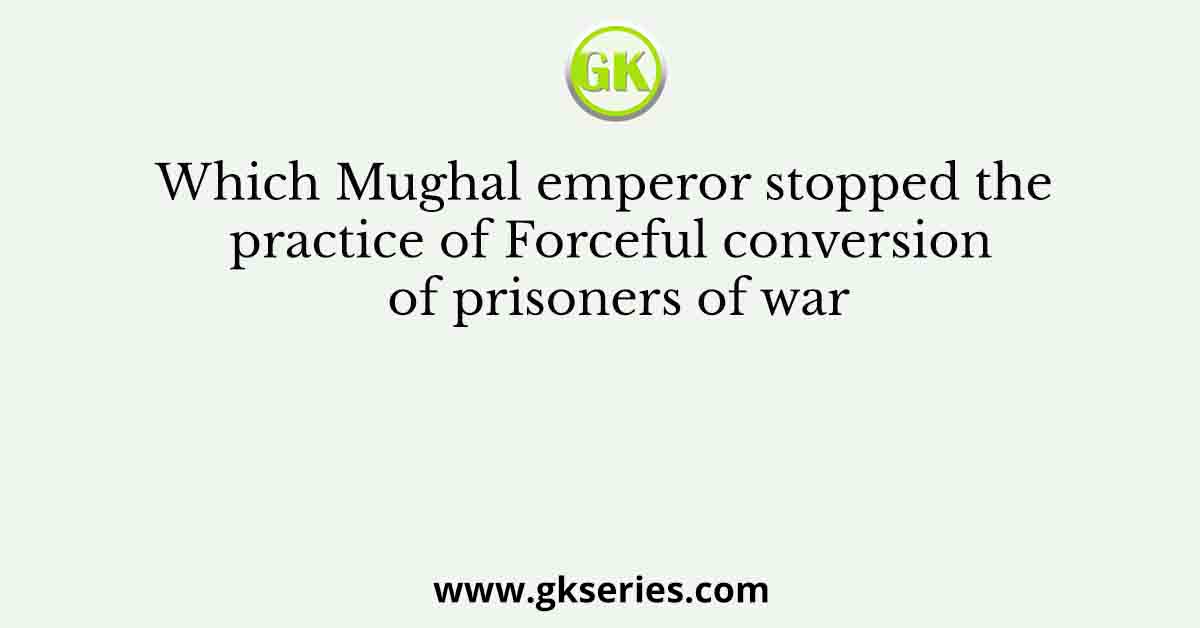
Q. Which Mughal emperor stopped the practice of Forceful conversion of prisoners of war?
(a) Akbar
(b) Jahangir
(c) Shah Jahan
(d) Aurangzeb
Ans: (a) Akbar
Explanation:
The correct answer is (a) Akbar.
Akbar, the third Mughal emperor, is known for his policy of religious tolerance and his efforts to promote harmony among different religious communities. He implemented several reforms during his reign, one of which was the abolition of the practice of forceful conversion of prisoners of war.
Akbar believed in the principle of Sulh-i-Kul, which means “peace with all.” He aimed to create a diverse and inclusive empire where people of different religions could coexist peacefully. As part of his policy, he abolished the discriminatory jizya tax on non-Muslims and discouraged forced conversions.
Instead, Akbar encouraged interfaith dialogue, established his own religious discourse known as Din-i-Ilahi, and sought to incorporate elements of various religions into a syncretic form of worship. He also appointed people from different religious backgrounds to important administrative positions, promoting religious tolerance within his empire.
Therefore, it was Akbar who stopped the practice of forceful conversion of prisoners of war during his rule.





